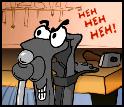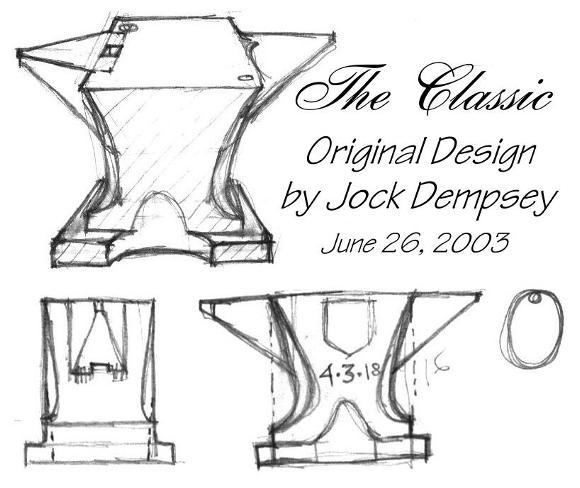|
|
| |
| |
|
|
|
|
|
|
|
|
| |
| |
| |
| |
| |
| |
| |
| |
| |
| |
|




| |
| |
|
Tell them you found it on anvilfire.com!
|
Blacksmithing and metalworking questions answered.
|
Anvil Making,
Amboß, Amboss,
l'enclume,
incudine,
el yunque, bigornia,
städ,
incus,
aambeeld,
batente
|
|

This design came about at a time when I had access to large blocks of hammer die steel.
The overall impression it is supposed to give is that of a medieval symbol of strength and power, an anvil of the gods.
A tool of the master of masters.
The body is a block 8 x 12 x 16" and the final weight is estimated at 550 pounds (as marked in English Hundredweights).
The anvil is made primarily by precision flame cutting with two "swoosh" cuts on the ends
and heavy chamfers flame cut on the corners to accentuate the shape.
The horns have full penetration welds and the added feet give the base a molded look.
The shallow cut outs between the feet are to reduce the flat look of the sides.
This is the design was where I came up with the method of 100% welding of a horn with hardy hole as shown in
3 Hardie Holes.
In this case the horns are welded into a milled or flame cut slot.
This makes some of the welding quite tight to accomplish but it can be done.
The special weld preparation only leaves two narrow beads on the top of the anvil.
The end result is a full penetration welded horn and a hardie hole set back into the body of the anvil where it can take great abuse while firmly supporting the hardie tool like no other anvil.
This original design is presented here to show the methods and possibilities that can be applied to making unique and fully functional anvils.
These can be tools or works of art.
References and Links
|
|
|
städ, incus, aambeeld, batente